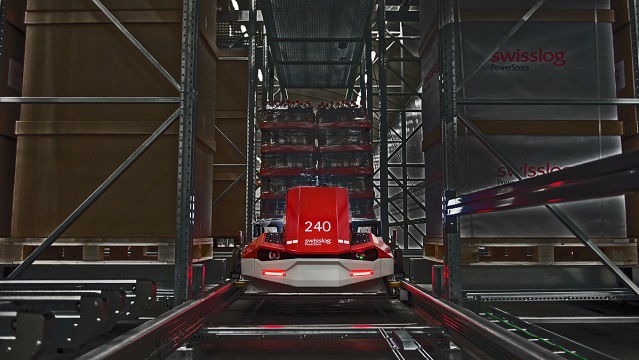
The Covid-19 pandemic has had vast impacts on Australian industries, and many have had to adapt rapidly to changing circumstances in order to survive.
Automation technologies, particularly in FMCG, grocery, warehousing and logistics applications, have suddenly become even more valuable, as they can provide essential services without risk of spreading the virus through human contact.
Lights-out logistics and the future of supply chains
When we think of the ‘warehouse of the future’, we think of a warehouse full of product, but no staff driving back and forth on forklift trucks, no load handlers examining products and picking items onto pallets, not even an electric light – just sky high racking, shuttles, lifts, robots, conveyors and autonomous vehicles choosing their own paths through the darkness, self-navigating with laser guidance systems, detecting obstacles and moving silently past them.
This is ‘lights-out logistics’, and although it may seem futuristic, it is already being used today. And lights-out logistics can help supply chains become more resilient in times of great uncertainty and disruption, such as financial crises and pandemics like Covid-19.
Covid-19 and the grocery supply chain
In February 2020, the World Health Organisation declared Covid-19 a global pandemic, and on April 1, 2020, the United Nations chief described it as “the greatest challenge the word had faced since WW2” with ripple effects spreading quickly through every part of industry.
The same mega-trends that contributed to recent double-digit annual growth across the intralogistics automation industry have revealed themselves to be the most significant epidemiological factors driving the spread and impact of the Covid-19 viral pandemic.
Utilising automation for productivity and resilience
As explained by the CEO of Americold in a BBC article in mid-April 2020, there has never really been a shortage of food during the outbreak, because, at any one time up to 3 months’ worth of goods have existed inside the supply chain. The challenge has been getting it out of supplier’s warehouses, into and out of the grocery supply chain National Distribution Centres (NDCs), Regional Distribution Centres (RDCs), and local DCs, and onto the stores shelves fast enough to keep up with demand.
High density, high throughput Automated Storage and Retrieval Systems (ASRS) technology for pallet handling, such as Swisslog’s PowerStore, could be real game changer in these prolonged spike scenarios moving forward – providing much needed horsepower to grocery chains willing to shift their focus from just-in-time to just-in-case.
It has already been deployed inside the beverage supply chain, where a low number of very fast moving SKUs distributed at pallet level is the norm, but it could work just as well inside the grocery supply chain to look after the top 200 or so most in demand products.
Where to from here?
Australian industry has always been resilient, and many local companies are already planning for post-virus operations by putting in place measures to increase efficiency and better serve their customers. It will be interesting to see if companies – particularly those involved in logistics and e-grocery industries – adopt automation strategies in response to Covid-19, and whether they see productivity and profitability gains that they otherwise wouldn’t have experienced.
For further findings, recommendations and conclusions, and to find out more about the megatrends impacting the grocery, supply chain, logistics and FMCG industries, and how Covid-19 has changed underlying trends, please download Swisslog’s new white paper, “Kaizen Paradox III – a case study: the Covid-19 pandemic & its effects on the grocery supply chain”.
By Paul Stringleman, Senior Consultant, Swisslog Australia. Paul has more than 20 years of local and international experience designing and engineering automated systems to handle a wide variety of goods, in applications such as distribution centres, airports and supermarkets. In the past five years, Paul has developed several data-driven automated warehouse solutions for e-commerce and retail companies in Australia.





